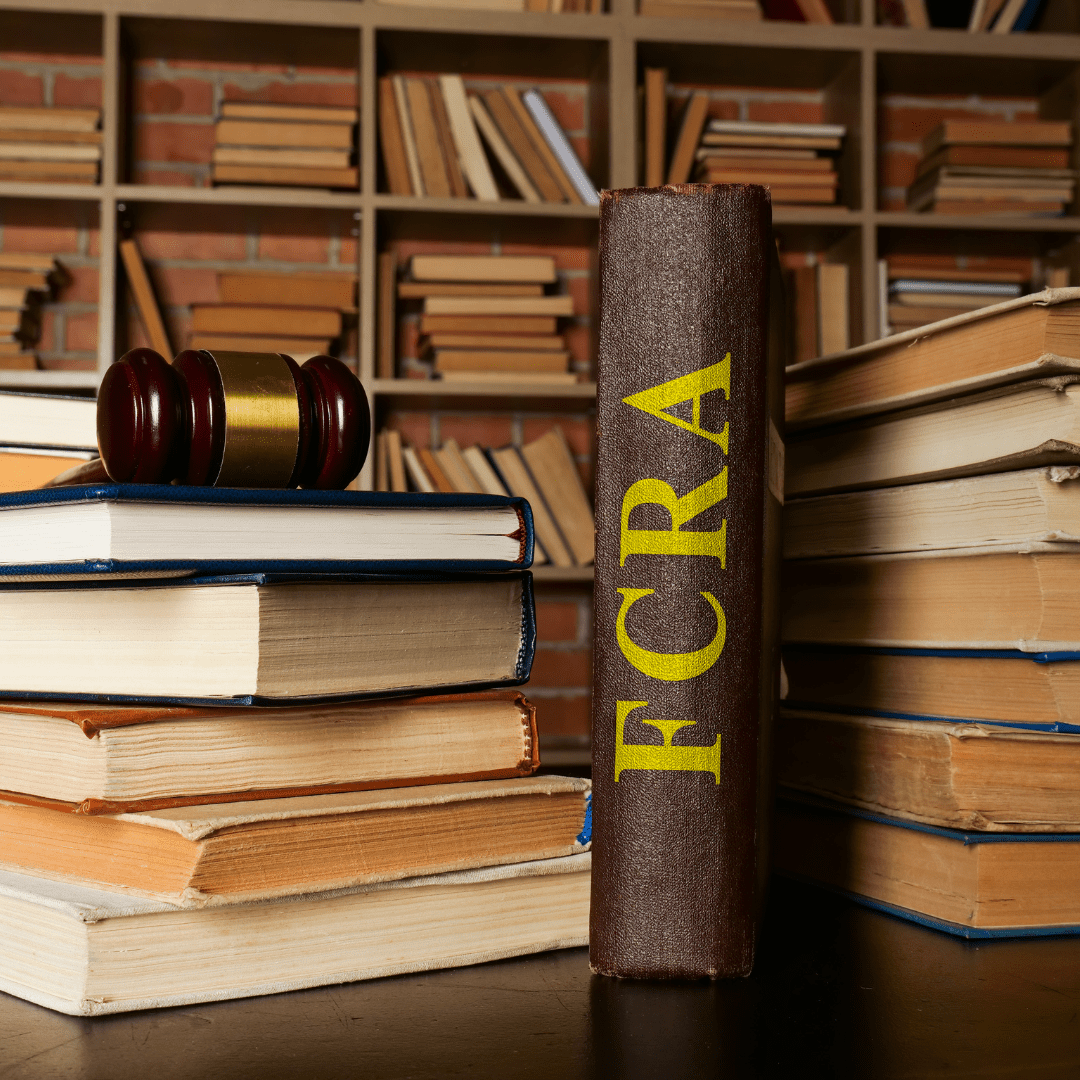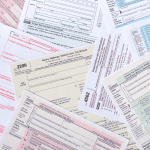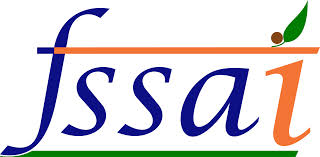Understanding FCRA India: A Comprehensive Guide
Introduction
The Foreign Contribution (Regulation) Act, 2010, commonly known as the FCRA Act 2010, is a significant piece of legislation enacted by the Government of India to regulate the acceptance and utilization of foreign contributions or donations by individuals, associations, and NGOs operating within the country. The primary objective of the FCRA Act is to ensure that such contributions do not adversely affect the sovereignty and integrity of India or the nation’s security interests.
Passed by the Indian Parliament, the FCRA Act 2010 replaced the previous FCRA Act of 1976, incorporating several amendments to modernize and streamline the regulatory framework governing the inflow of foreign funds. The Act aims to maintain transparency and accountability in the receipt and utilization of foreign contributions by mandating stringent registration and reporting requirements for entities receiving such funds.
Under the FCRA Act 2010, organizations seeking to receive foreign contributions must register with the Ministry of Home Affairs, Government of India, and comply with various reporting obligations, including submission of annual returns detailing the receipt and utilization of foreign funds. The Act also prohibits the use of foreign contributions for activities detrimental to the national interest, such as political activities, speculative investments, and activities that could disrupt communal harmony.
Furthermore, the FCRA Act empowers the government to monitor and regulate the flow of foreign contributions to prevent misuse or diversion for unlawful purposes. It establishes mechanisms for scrutiny and investigation of organizations suspected of violating the provisions of the Act, with provisions for penalties and legal action against non-compliant entities.
Overall, the FCRA Act 2010 serves as a crucial tool for the Indian government to safeguard national interests while facilitating legitimate foreign contributions for socio-economic development and charitable purposes within the country. Its implementation underscores the importance of responsible stewardship of foreign funds to support genuine humanitarian and developmental endeavors while ensuring compliance with regulatory requirements and legal norms.
FCRA Registration Process Overview – Fcra India
Understanding FCRA Registration
Understanding FCRA registration is essential for any organization or individual in India intending to receive foreign contributions legally and transparently. FCRA registration refers to the process of obtaining approval from the Ministry of Home Affairs, Government of India, under the Foreign Contribution (Regulation) Act, 2010, to receive funds from foreign sources for specified purposes.
Here are key aspects to consider when seeking FCRA registration:
- Eligibility Criteria: Organizations eligible for FCRA registration include NGOs, associations, societies, trusts, and other entities engaged in social, cultural, economic, educational, or religious activities. However, certain categories of organizations, such as political parties, government officials, and entities associated with speculative activities, are ineligible for FCRA registration.
- Application Process: The FCRA registration process involves submitting an application to the Ministry of Home Affairs along with relevant documents, such as audited financial statements, annual reports, project details, and proof of activities. The application must be filed electronically through the FCRA Online portal, and all required documents should be uploaded as per the specified format.
- Documentation: Organizations applying for FCRA registration must provide detailed information about their objectives, sources of funding, past activities, governing body composition, and proposed utilization of foreign contributions. Additionally, documents such as registration certificates, PAN cards, bank account details, and authorization letters from key functionaries are required to support the application.
- Scrutiny and Verification: Upon submission, the Ministry of Home Affairs conducts a thorough scrutiny of the application and documents to verify the authenticity and eligibility of the applicant organization. This may involve field inquiries, site visits, and interactions with the organization’s representatives to validate the information provided.
- Grant of Registration: If the application meets all the prescribed criteria and requirements, the Ministry of Home Affairs may grant FCRA registration to the organization, typically valid for a period of five years. Once registered, the organization can legally receive foreign contributions for the specific purposes mentioned in the registration certificate.
- Compliance and Reporting: FCRA-registered organizations must adhere to various compliance obligations, including timely submission of annual returns, utilization reports, and other prescribed documents to the Ministry of Home Affairs. Failure to comply with these requirements may result in penalties, suspension, or cancellation of FCRA registration.
- Renewal and Amendments: FCRA registration needs to be renewed before its expiry to continue receiving foreign contributions. Additionally, any changes in the organization’s name, address, objectives, or governing body composition must be promptly communicated to the Ministry of Home Affairs for necessary amendments to the registration certificate.
Understanding FCRA registration procedures and requirements is crucial for organizations seeking to engage with foreign donors and undertake charitable or developmental activities in India. By ensuring compliance with FCRA regulations, entities can uphold transparency, accountability, and integrity in the utilization of foreign contributions while contributing effectively to social welfare and nation-building initiatives.
How to Register in Fcra India
Registering with the Foreign Contribution (Regulation) Act (FCRA) in India involves a series of steps to ensure compliance with the regulations set forth by the Ministry of Home Affairs. Below is a guide on how to register under FCRA:
- Eligibility Verification: Before initiating the registration process, ensure that your organization meets the eligibility criteria laid out in the FCRA guidelines. Eligible entities typically include NGOs, associations, societies, trusts, and other nonprofit organizations engaged in specified activities.
- Preparation of Documents: Gather all necessary documents required for the registration process. This typically includes:
- Registration certificate of the organization (e.g., society registration certificate, trust deed)
- PAN card of the organization
- Memorandum of Association (MOA) and Articles of Association (AOA)
- Audited financial statements for the past three years
- Detailed project reports and activities undertaken
- Bank account details and authorization letter
- List of key office bearers and governing body members
- Any other relevant documents as specified by the Ministry of Home Affairs.
- Online Application Submission: Visit the FCRA Online portal (https://fcraonline.nic.in/) and create an account if you haven’t already. Complete the online application form accurately, providing all required information and uploading the necessary documents in the prescribed format.
- Payment of Fees: Pay the requisite fees for processing the FCRA registration application. The fee structure is subject to change and should be verified at the time of application submission.
- Application Submission: After filling out the application form and uploading the documents, submit the application through the FCRA Online portal. Ensure that all information provided is accurate and matches the supporting documents.
- Scrutiny and Verification: Once the application is submitted, the Ministry of Home Affairs conducts a thorough scrutiny of the application and supporting documents. This may involve field inquiries, verification of documents, and assessment of the organization’s activities and objectives.
- Approval and Issuance of Registration: If the application meets all the requirements and passes the scrutiny process, the Ministry of Home Affairs will grant FCRA registration to the organization. A registration certificate will be issued, typically valid for a period of five years, unless specified otherwise.
- Compliance and Reporting: After obtaining FCRA registration, ensure compliance with all regulatory requirements. This includes timely submission of annual returns, utilization reports, and other prescribed documents to the Ministry of Home Affairs.
- Renewal and Amendments: Renew FCRA registration before its expiry to continue receiving foreign contributions. Additionally, promptly inform the Ministry of Home Affairs about any changes in the organization’s details or activities for necessary amendments to the registration certificate.
By following these steps and adhering to FCRA regulations, organizations can legally receive foreign contributions for charitable or developmental activities while upholding transparency and accountability in their operations.
FCRA India Processing Time
Timelines for FCRA Registration
The processing time for FCRA registration varies depending on various factors, including the accuracy of documentation, verification procedures, and workload at the Ministry of Home Affairs. Typically, it may take several months to complete the registration process.
Expedited Processing Options
Certain expedited processing options are available for urgent cases or organizations requiring immediate FCRA registration. However, these options often involve additional fees and stringent eligibility criteria.
FCRA Portal and Related Information
FCRA Portal Overview
The FCRA portal serves as the primary online platform for organizations and individuals in India to interact with the Foreign Contribution (Regulation) Act, 2010 (FCRA). It is a web-based application developed by the Ministry of Home Affairs, Government of India, to facilitate various activities related to FCRA registration, filing of returns, and compliance management. Here’s an overview of the FCRA portal:
- User Registration: To access the FCRA portal, users need to register themselves by creating an account. The registration process typically requires providing basic details such as name, email address, contact number, and organization information (if applicable). Once registered, users receive login credentials to access the portal’s features.
- FCRA Registration: One of the primary functions of the FCRA portal is to facilitate the registration of organizations seeking to receive foreign contributions. Users can submit their FCRA registration applications online through the portal by filling out the necessary forms and uploading required documents electronically. The portal provides guidance and instructions to help applicants complete the registration process accurately.
- Application Tracking: The FCRA portal enables applicants to track the status of their registration applications in real-time. Users can log in to their accounts and view updates on the progress of their applications, including any requests for additional information or documents from the Ministry of Home Affairs.
- Document Submission: Organizations can upload supporting documents such as registration certificates, audited financial statements, project details, and authorization letters directly through the FCRA portal. The portal ensures secure transmission and storage of sensitive documents, thereby streamlining the application process and reducing paperwork.
- Payment Gateway: The FCRA portal features an integrated payment gateway for online payment of application fees and other charges related to FCRA registration and compliance. Users can make payments securely using various payment modes supported by the portal, including credit/debit cards, net banking, and UPI.
- Compliance Reporting: Registered entities are required to submit annual returns, utilization reports, and other compliance-related documents to the Ministry of Home Affairs through the FCRA portal. The portal provides designated forms and templates for filing these reports electronically, ensuring timely and accurate submission by the organizations.
- Helpdesk Support: The FCRA portal offers comprehensive helpdesk support to assist users with queries, technical issues, and guidance related to FCRA registration and compliance. Users can access FAQs, user manuals, and contact information for assistance through the portal interface.
Overall, the FCRA portal serves as a centralized platform for efficient management of FCRA-related activities, enhancing transparency, accessibility, and accountability in the administration of foreign contributions in India. Its user-friendly interface and integrated features contribute to simplifying the registration process, facilitating compliance, and promoting the effective utilization of foreign funds for legitimate purposes.
Legal Implications and Documentation – FCRA India
Legal implications and documentation play a crucial role in the context of the Foreign Contribution (Regulation) Act, 2010 (FCRA) in India. Compliance with FCRA regulations is essential for organizations and individuals intending to receive foreign contributions legally and transparently. Here’s a detailed overview:
- Legal Implications:
- Non-compliance with FCRA regulations can have severe legal consequences, including penalties, suspension, or cancellation of FCRA registration.
- Violations of FCRA provisions may result in criminal prosecution, fines, and imprisonment for individuals or entities found guilty of misusing foreign contributions or engaging in prohibited activities.
- FCRA enforcement agencies have the authority to conduct inspections, audits, and investigations to ensure compliance with statutory requirements and prevent misuse of foreign funds.
- Documentation:
- Documentation plays a vital role in FCRA compliance, starting from the registration process to ongoing reporting and utilization of foreign contributions. Some essential documents include:
- Registration Certificate: Issued by the Ministry of Home Affairs upon approval of FCRA registration application, valid for a specified period.
- Audited Financial Statements: Annual financial reports audited by a chartered accountant, providing details of income, expenditure, and utilization of foreign contributions.
- Project Proposals: Detailed plans outlining the objectives, activities, budget, and expected outcomes of projects funded by foreign contributions.
- Bank Statements: Statements reflecting transactions related to receipt, utilization, and balance of foreign contributions in designated FCRA bank accounts.
- Annual Returns: Reports submitted annually to the Ministry of Home Affairs, disclosing receipt, sources, and utilization of foreign contributions, along with other prescribed details.
- Authorization Letters: Letters authorizing designated individuals or signatories to represent the organization and undertake FCRA-related activities.
- Other Supporting Documents: Depending on the nature of activities and sources of foreign funding, additional documents such as activity reports, donor agreements, and project evaluations may be required.
- Documentation plays a vital role in FCRA compliance, starting from the registration process to ongoing reporting and utilization of foreign contributions. Some essential documents include:
- Record Keeping:
- FCRA-registered entities must maintain accurate and up-to-date records of all transactions, communications, and activities related to foreign contributions.
- Proper record keeping is essential for facilitating audits, inspections, and compliance assessments by FCRA authorities and ensuring transparency in the utilization of foreign funds.
- Compliance Management:
- Establishing robust compliance mechanisms and internal controls is imperative for organizations to adhere to FCRA regulations effectively.
- Regular review of FCRA-related policies, procedures, and documentation helps identify and address compliance gaps, mitigating the risk of legal sanctions and reputational damage.
In summary, understanding the legal implications and maintaining comprehensive documentation are essential components of FCRA compliance for organizations and individuals receiving foreign contributions in India. By adhering to statutory requirements and maintaining transparency in their operations, entities can demonstrate accountability, uphold regulatory standards, and contribute positively to societal development while mitigating legal risks.
FAQs (Frequently Asked Questions)
Q: What is FCRA registration? A: FCRA registration refers to the process of obtaining approval from the Ministry of Home Affairs, Government of India, to receive foreign contributions legally under the Foreign Contribution (Regulation) Act, 2010.
Q: Who needs to register under FCRA? A: Organizations and individuals engaged in social, cultural, economic, educational, or religious activities in India and intending to receive foreign contributions need to register under FCRA.
Q: What documents are required for FCRA registration? A: Required documents include registration certificates, audited financial statements, project details, bank account information, and authorization letters, among others.
Q: How can I apply for FCRA registration? A: You can apply for FCRA registration online through the FCRA portal maintained by the Ministry of Home Affairs, Government of India, by filling out the necessary forms and uploading required documents.
Q: What are the eligibility criteria for FCRA registration? A: Organizations eligible for FCRA registration include NGOs, associations, societies, trusts, and other entities engaged in permissible activities as per FCRA guidelines.
Q: How long does FCRA registration remain valid? A: FCRA registration is typically valid for a period of five years, after which it needs to be renewed to continue receiving foreign contributions legally.
Q: What are the consequences of non-compliance with FCRA regulations? A: Non-compliance with FCRA regulations may result in penalties, suspension, or cancellation of FCRA registration, as well as potential criminal prosecution and legal sanctions.
Q: Can FCRA-registered organizations receive foreign contributions for any purpose? A: No, FCRA-registered organizations can only receive foreign contributions for specified purposes that are permissible under FCRA guidelines, such as social welfare, educational, cultural, or religious activities.
Q: What is the role of documentation in FCRA compliance? A: Documentation plays a crucial role in FCRA compliance by providing evidence of eligibility, transparency, and accountability in the receipt and utilization of foreign contributions.
Q: Where can I find more information about FCRA registration and compliance? A: For more information about FCRA registration and compliance, you can refer to the official FCRA guidelines, consult legal experts, or visit the Ministry of Home Affairs website for relevant resources and updates.
Conclusion
Understanding FCRA regulations is crucial for organizations seeking to receive foreign contributions in India. By following the registration process diligently, adhering to documentation requirements, and staying compliant with legal obligations, organizations can navigate the FCRA landscape effectively.
Author Note: By Noor Siddiqui from Etaxdial.com. This article is written for informational purposes to help users understand the FCRA registration process and document checklist. The aim is to provide clear instructions and guidance in accordance with government guidelines, facilitating an easier registration procedure for individuals and organizations seeking FCRA compliance.




